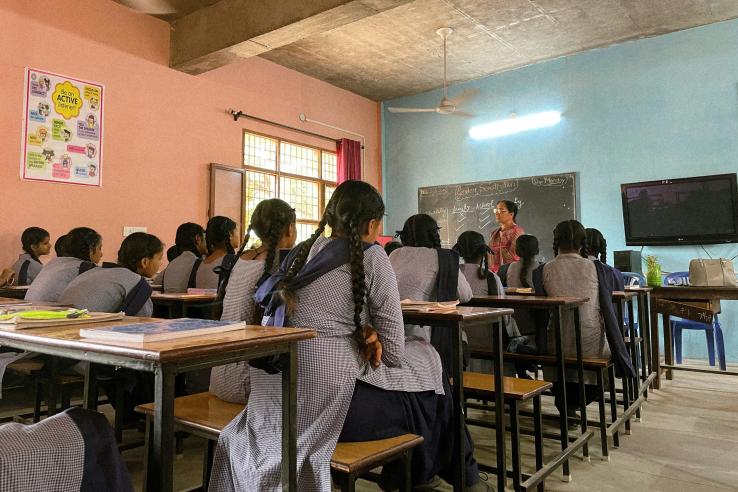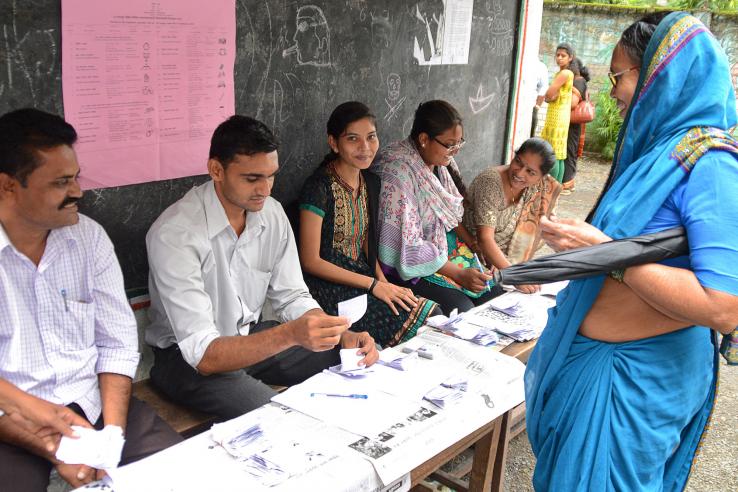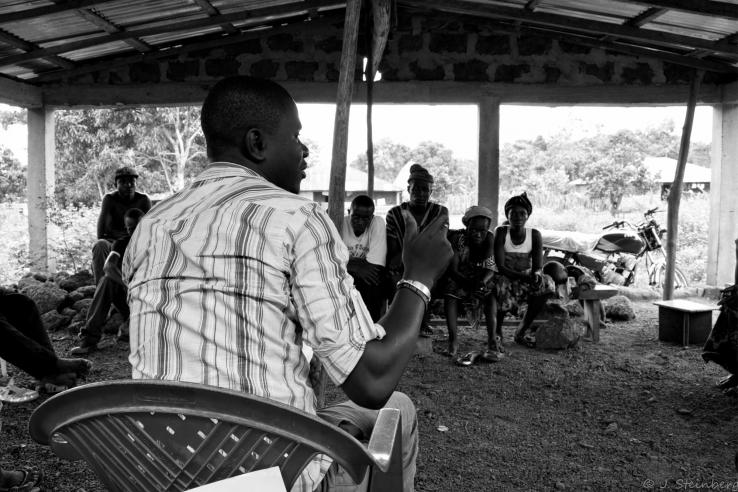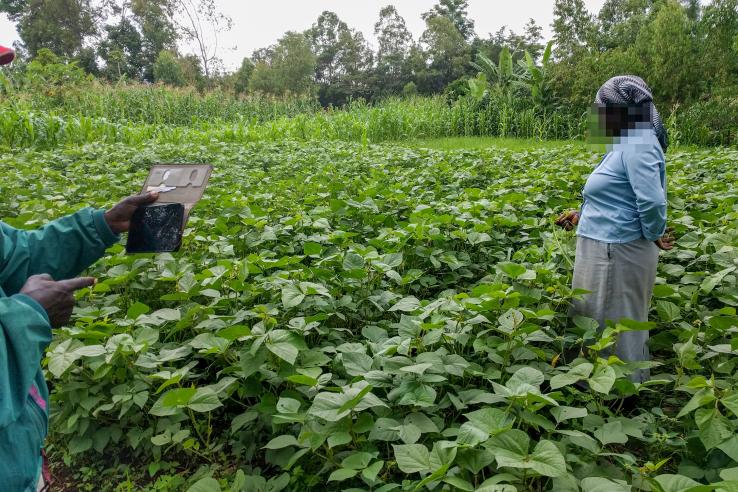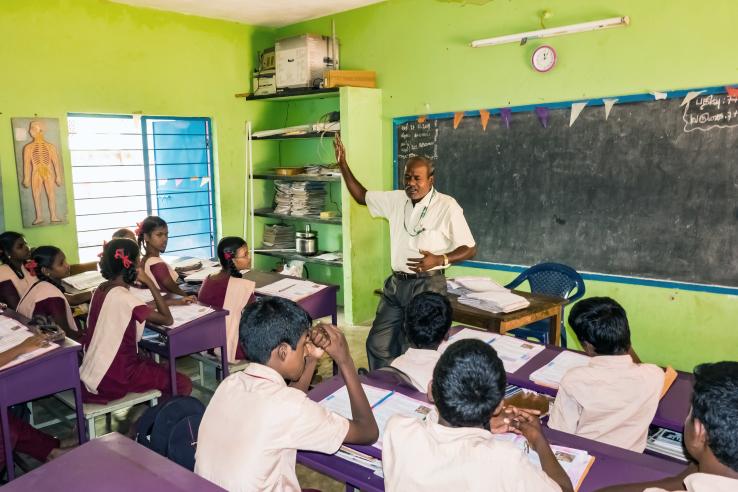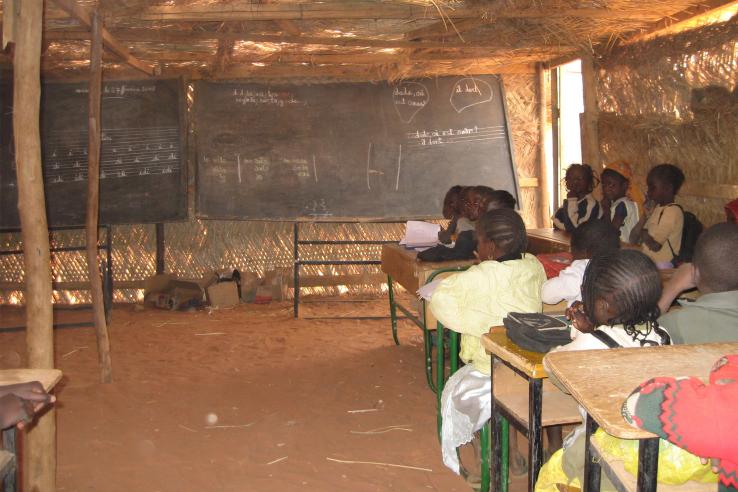Displaying 4501 - 4515 of 8450
Evaluation
In India, researchers evaluated the impact of a public sector management program involving comprehensive assessments of schools, detailed school ratings, and customized school improvement plans, on school functioning and student learning. Researchers found that the MPSQA program was successful in conducting high-quality external school assessments.
Evaluation
Evaluation
To diminish the effect of bribes on voter behavior, researchers designed and evaluated a non-partisan anti-vote-buying radio campaign during the 2014 Indian general election. Researchers assessed whether voters in areas that were randomly assigned to receive the radio campaign became less likely to vote for the reputed vote-buying parties. Researchers found that the radio campaign decreased the vote share of vote-buying parties by 3.5 to 7.1 percentage points.
Evaluation
In Chicago, researchers evaluated an intensive two-on-one math tutoring program for 9th and 10th grade male students in public schools to assess the effectiveness of individualized instruction. Students who were randomly assigned to tutoring scored higher on math exams, earned better grades in math, and were more likely to pass high school classes.
Evaluation
Evaluation
Researchers examined the impact of different types of motivation on the number and quality of candidates running for village councils in Pakistan, electoral outcomes, and elected candidates’ policy alignment with citizens’ interests. They found that portraying politics as socially beneficial–rather than personally rewarding–increased candidate entry, their electoral success, and elected officials’ policy alignment with citizen preferences.
Evaluation
Recent studies have found that summer youth employment programs appear to generate large declines in the rates of violent crime—a significant finding for urban policymakers seeking to create safer, more vibrant cities.
Evaluation
In Kenya, researchers matched farmers with subsidized, trained watchmen to evaluate the effect of improved farm security on farmers’ decision-making, agricultural productivity, and conflict with neighbors. Security was shown to increase and in response, farmers made different cropping, time use, and investment decisions, had higher agricultural yields, and experienced less conflict with their neighbors.
Evaluation
Researchers evaluated whether coaching, guidance, and financial support could help young people create and sustain independent businesses. The entrepreneurship training program did not increase entrepreneurship, and participating youth were more likely to be unemployed and earn lower revenues from their business 28 months after the start of the program.
Evaluation
In this randomized evaluation, researchers will test the impact of a large-scale leadership training program in India on improving school management practices and student learning. The intervention is ongoing, and results are forthcoming.
Evaluation
Researchers examined the short-term responses of a grant to school committees and find that overall, parents increased participation and responsibility, but these efforts did not improve overall school quality. Enrollment at the lowest grades increased and school resources improved, but teacher absenteeism increased, and there was no impact on test scores.
